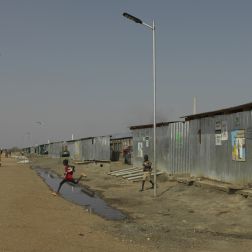- 3 mins read time
- Published: 25th April 2020
Trust comes first: strengthening COVID-19 prevention mechanism in Rohingya camps
Since Oxfam’s humanitarian response in Bangladesh and Mayanmar began in September 2017, we dedicated our efforts to building relationships with the Rohingya refugee community and traditional community leaders like Majhis and Imams. Majhis and Imams hold an important role the camps as people listen to and respect their advice, and so they lead on developing community action plans for proper hygiene management to help reduce public health risks. Community-based Volunteers have also played an important role in ensuring accurate, timely information is passed onto people, and they have played a central role in strengthening Oxfam’s relationship with the wider community.

COVID-19 now poses serious challenges for all people in the camps – both refugees and humanitarian responders. Aid agencies are only allowed to run essential services and as a part of the government’s directive, we are continuing our water, hygiene, and sanitation services – ensuring people have access to clean water and soap. It is a challenging task as only a handful of our team can access the camps because of strict regulatory controls that are in place to prevent the spread of the virus. Over the last three weeks, we have been providing essential emergency services successfully, and it has been possible because of Oxfam’s trusted relationship with the community.
It is amazing to see the leadership of the community in this challenging time. Community Based Volunteers and the community in general are playing an active role in keeping WASH services functioning, while our front-line warriors have taken up the role of facilitators and communicators.

For example, Majhis are now monitoring the functionality of wash facilities and solid waste management at the block level. Imams are encouraging the community to practice hand washing with soap, maintain cleanliness of sanitation facilities and practice physical distancing in public places. Religious leaders are also encouraging people to practise their religious activities at home, to help slow the spread and keep people safe.
As Oxfam, we have a duty to ensure the correct information about COVID-19 is disseminated. Whenever people see Oxfam warriors in the camp, they approach to them for advice and information on a number of issues. Experiencing Oxfam as a trusted source of information demonstrates the importance of maintaining functional and empowering relationship with the communities, we work with everyday - because at the end of the day, we really are all in this together.
Dipankar Datta, Oxfam Country Director in Bangladesh

This disease knows no borders and does not discriminate. For the world’s poorest and most vulnerable, the worst is yet to come as the coronavirus begins to establish itself and spread quickly through communities powerless to stop it, without access to water, sanitation or healthcare.
Together, we can save lives.




